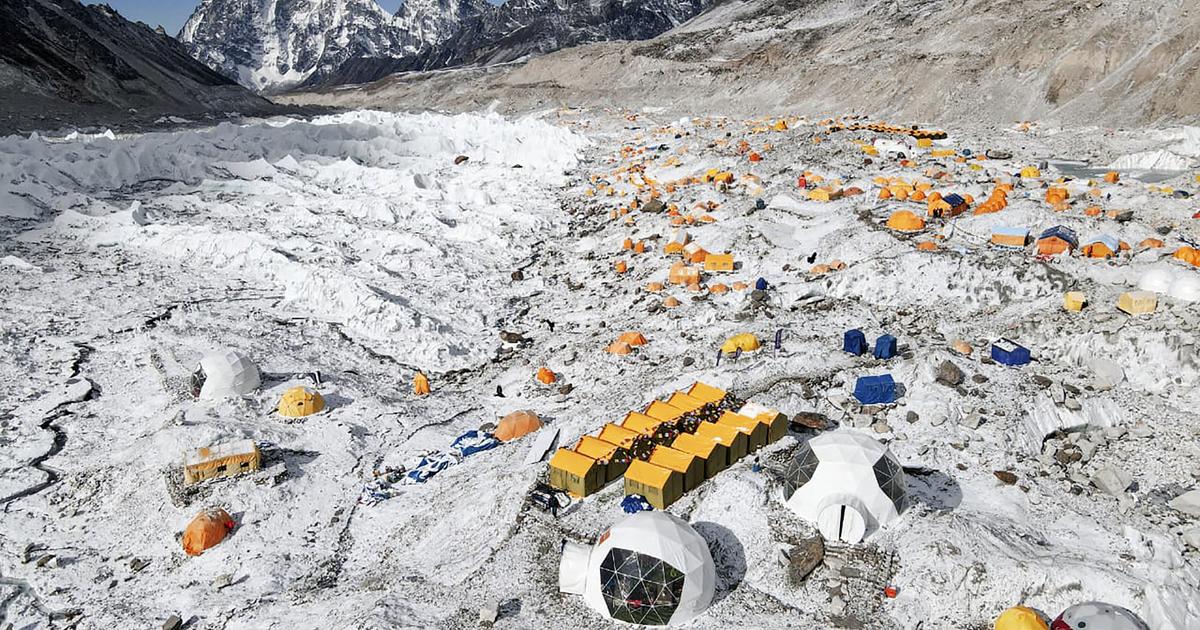Mountaineers who tackle Everest or neighboring peaks in the region will now have to carry their excrement back down to base camp in a plastic bag, according to the
BBC
.
“Our mountains started to smell bad
,” Mingma Sherpa, president of the Pasang Lhamu municipality, who was behind this decision, explained to the British media.
Above base camp, located at more than 5,000 meters above sea level, excrement does not completely disintegrate due to extreme temperatures in any season.
“We have received complaints that human feces are visible on the rocks and some climbers are falling ill
,” added Mingma Sherpa.
Mountaineers climbing Everest will now have to buy bags which will be checked on their return.
At base camp, toilets are available in special tents inside which barrels, intended to collect stools, are emptied.
But higher in altitude, in the higher camps, climbers most of the time improvise their toilet by digging a hole in the snow or on the ground when the snow gives way to rock.
Also read: Everest 70 years later, a disenchanted mountain that still fuels dreams
“Waste remains a major problem, particularly in camps located at high altitude and inaccessible,”
Chhiring Sherpa, director general of the NGO Sagarmatha Pollution Control Committee (SPCC),
also told the
BBC .
According to his figures, there are three tonnes of human excrement between camp one at the foot of Everest and camp four, towards the summit.
The South Col in particular, at 7906 meters, is said to have acquired the reputation of
"open toilets"
.
Continually swept by freezing winds, this pass, from which mountaineers set off for the final assault towards the summit, is entirely made of stone, neither without snow nor ice.
Waste problem
The municipality carefully counted the number of bags based on the 1000 to 1500 people who will attempt the summit from March, and by precisely calculating the quantity of stools per climber per day: around 250 grams.
More generally, waste on Everest is a problem regularly highlighted by associations and the Nepalese government which is increasing its cleaning campaigns.
Several ambitious projects have also been set up by mountaineers to try to clean up the various high altitude camps.
During the last climbing season, a French explorer and his team collected 1.6 tonnes of plastic waste in the Himalayas.
Drums, tents, PVC tubes and bottles.
“It’s a real dump.
Behind each rock, we find quantities of oxygen bottles, canned goods, tents, shoes, it's really aberrant,”
Luc Boisnard testified from Nepal, returning from a first attempt to climb Makalu. , 8485 meters.

